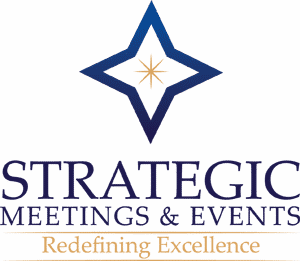Replaceable Planners?
By Sue Pelletier
“What I’m hearing from all the association human resources people I’ve been speaking with can be summed up in two words: downsizing and outsourcing,” reports Shira Harrington, a senior personnel consultant with the Washington, D.C.-based recruiting firm Positions Inc. Harrington says she’s being flooded with résumés from laid-off association meeting potentially replaceable planners, while job listings are barely trickling in.
“Associations are not downsizing and outsourcing because there’s too much fat in the organizational structure,” she explains. ‘They’re doing it to consolidate positions, to restructure so they can do more with less. And when someone leaves, they’re not rehiring to fill that position.”
As Christy Lamagna, CMP, CMM, who has been out of work for a year, says, “For those who don’t think it could happen to them, think again. It’s a scary world for our industry. Put the safety plan in motion before it becomes an emergency plan.”
 Liz Hollenbach can second that emotion. Hollenbach was working away on the 200-plus meetings a year that the AARP (formerly called the American Association of Retired Persons) meetings and travel department handled annually when her entire 14-person department was axed just before September 11 last year.
Liz Hollenbach can second that emotion. Hollenbach was working away on the 200-plus meetings a year that the AARP (formerly called the American Association of Retired Persons) meetings and travel department handled annually when her entire 14-person department was axed just before September 11 last year.
“It was shocking, mind-boggling,” she says about losing the job she’d had for 15 years — with no prior notice. “We had from September 6th to the 12th to dismantle an entire department.” And, of course, the job market for meeting planners was pretty grim in the months following the terrorist attacks.
“I was sending out résumés for ad after ad, and I did the online job sites as well. I talked with everyone I knew in the industry — bureau people, hotel people, other meeting planners.” It was a word-of-mouth recommendation that got her an interview with the McLean, Va.-based American Frozen Food Institute, where she is now the senior director of conventions and meetings.
SENIOR LEVEL HIT HARD
Barbara Dunlavey, CMP, didn’t have quite so soft a landing. After being laid off as vice president of conferences with a technology association last year, she took a less senior-level position as director of meetings and exhibits for an Alexandria, Va.-based association. “It’s not ideal, but it is a steady paycheck. You do what you have to do to get by in this economy,” she says.
“Twice I went through rigorous interview and vetting processes for senior-level positions. By the time you get to the third or fourth round, you’re thinking you’re the lead candidate. Both times, the organization said, ‘We would have hired you, but we decided not to open up this position at this time.’ It’s hard not to take it personally — there were times I was ready to jump off a bridge — but you have to keep going.”
She’s not alone: Many senior-level association meeting planners are finding themselves overqualified for today’s job market. While the few listings she has aren’t enough for a statistical analysis, recruiter Harrington notes, “Generally speaking, people are looking for someone with three- to five-years of experience and good contract negotiation skills. Higher-level positions are very hard to come by, and salaries are being capped out on the lower end.”
Several people interviewed for this article requested anonymity. One of them headed an association’s meeting department until he was laid off more than a year ago. After 20-plus years experience as a meeting planner, a CMP designation, two college degrees, and three teaching certificates, he’s currently substitute teaching. “I’m sad to say that our meeting planning experience is viewed as tissue paper — use it and throw it away,” he says. “Seems there was no choice but to move on.”
Lamagna, who lives and works in New York City and San Francisco, says, “I shake my head in wonder — I can’t find work because I worked too hard in the past. Too many degrees, too much work experience. Can you imagine?” In between working at a retail store, she is doing pro bono freelance strategic planning, cost analysis, and events of all types under the auspices of her independent company, Strategic Meetings and Events, but “most folks take the freebie and then say I’m amazing, but there is no budget for me.”
REPORT TO THE TOP
Even Joan Eisenstodt, president of Eisenstodt Associates in Washington, D.C., who is a big proponent of meeting planners improving their strategic skills, wonders, “Will the pure logistics person be the survivor? Nonthreatening to anyone else in the association and lower paid than someone who is more strategically oriented Have all our efforts been for naught?”
 Hollenbach doesn’t think so. One thing she learned is that meeting planners today need to position themselves as part of the money-making area of the organization, and position themselves as high up as they can. “In my job today, I report directly to the president and CEO. At my old job at AARP, we were saving a lot of money, but no one at the top knew it.”
Hollenbach doesn’t think so. One thing she learned is that meeting planners today need to position themselves as part of the money-making area of the organization, and position themselves as high up as they can. “In my job today, I report directly to the president and CEO. At my old job at AARP, we were saving a lot of money, but no one at the top knew it.”
Other than AARP’s big annual event, which went to a restructured version of the association’s former special events department, the rest of the association’s meetings were handed to whoever was willing to take them on, says Hollenbach. “People who’ve never done meetings before now are negotiating contracts. Ultimately, it’ll end up costing them more in higher rates and lost time than they’ll be saving in salary.”
As Dunlavey says, “Our best defense is needling our way into senior management. But it’s a double-edged sword — once you get there, you’re better paid and more vulnerable to cutbacks. But even if you do get downsized, at least you have a better shot at getting in with a more forward-thinking organization.”
One piece of advice she offers: If you find a job you like, grab it, even if the money’s not want you want. While it’s upsetting to have to settle for a lesser salary, “It’s even sadder to see so many people who can’t find anything that’s a good fit for them, or who are leaving the industry altogether.”
CONTINGENCY PLANNING
“I don’t want to sound pessimistic — I do believe the economy will turn around — but if we go to war, how could business travel not be affected?” Dunlavey says, adding that “anyone who hasn’t made contingency plans for their careers as well as their meetings is crazy.” She’s taking her own advice and sharpening transferrable skills such as business development, fundraising, and marketing, just in case.
 Susan Sarver, CMP, senior conference manager, Meeting and Conference Department, National Association of Securities Dealers, Washington, D.C., took her contingency planning to an even higher level recently. “I’ve done some serious thinking within the last year about what I would do if my job evaporated … about what my options were and where my career was headed. So, now I am a first-year law student at George Washington University School of Law.” While it’ll take a while to get through school while working full time at NASD — where her leadership supports her new direction unreservedly — she is looking forward to focusing her law career on the hospitality industry and in teaching meeting planners about the law.
Susan Sarver, CMP, senior conference manager, Meeting and Conference Department, National Association of Securities Dealers, Washington, D.C., took her contingency planning to an even higher level recently. “I’ve done some serious thinking within the last year about what I would do if my job evaporated … about what my options were and where my career was headed. So, now I am a first-year law student at George Washington University School of Law.” While it’ll take a while to get through school while working full time at NASD — where her leadership supports her new direction unreservedly — she is looking forward to focusing her law career on the hospitality industry and in teaching meeting planners about the law.
Sheryl Sookman, CMP, who started her Novato, Calif.-based The MeetingConnection headhunting firm during the Gulf War recession in the early ’90s after being laid off from her planning position, acknowledges that “it’s awful out there. But at least the cutbacks we’re seeing for associations are still less than what we’re seeing on the corporate side. We have to accept the fact that things are different now. If it’s any comfort for laid-off planners, know that at least you’re in very good company.”
Editor’s note: For more job search advice and information, visit AM’s Website at www.meetingsnet.com and click on the Career Toolkit button.
Third Parties: Friend or Foe?
Many are quick to pin the blame for industry layoffs on third-party planning companies who tempt their organizations to shed salaried employees in favor of less-expensive external planners. Bruce Harris, who heads up the Cleveland-based independent meeting planning firm Conferon, says it just ain’t so, at least not at his company.
While Conferon may be picking up 100 new clients this year, the majority of which are associations, “We’re not replacing their planners — we’re working for their planners,” he says. Housing and registration are the most commonly outsourced functions, he adds.
A new study from the American Society of Association Executives backs him up. Titled “Generating and Managing Non-Dues Revenues: A Benchmarking Guide,” the study found that only 3 percent of ASAE’s member organizations outsourced their entire meeting and convention functions. “Approximately 65 percent of our member organizations conduct all their meeting planning in-house,” says Steven Williams, PhD, ASAE’s director of industry and market research. “Thirty-two percent outsource part of their meetings.”
Eric Johnson, CMP, CMM, group director, Convention and Trade Show Division with association management company Smith, Bucklin and Associates in Chicago, offers a different point of view. “In this type of market, we get a lot of request for proposals from associations looking to outsource their meetings.” Some of the RFPs come from those seriously looking to outsource, some from those looking to see if it’s still viable to keep it in-house, he says. “We are seeing a lot of activity and interest, and we’re able to close some of that business. It’s been my experience that some of the business we get is from associations that are replacing their internal planners with third parties, and some of it isn’t.”
INDEPENDENTS’ VIEW
According to a third-party planner who wishes to remain anonymous, “Associations do not want to spend the money to outsource their reduced meeting schedule — the planning is being done instead at the admin level or by the marketing department.” While she believes the pendulum will swing toward third-party companies, “in the short-term, we are more in jeopardy than those in-house.”
But that’s not stopping Susan Perry, CAE, who until December had been executive vice president, business development, with the International Sleep Products Association in Alexandria, Va. “I’ve been with ISP for 15 years, and with a change in leadership and in our meetings, the time is right for me to move on.” She thinks there’s a growing need for “people who know what they’re doing, can show their value, and be there on an as-needed basis.”
Perry’ll be doing everything from advertising and sponsorship sales to meeting planning logistics and contract negotiations. “I’ve been involved at the board level in everything from meetings to strategic planning to sales, so I have an interesting mix of skills.”
While the thought of going independent right now is scary for some, Perry isn’t worried. “Hey, people still need to hold meetings, they still need to generate revenue — even more in bad times. As reverse-whacko as it may sound, this is probably a better time to do this than if I waited until the good times roll around again.”
Tags: Replaceable Planners, Event Planning, Event Planners, Strategic Planners, Strategic Events, Corporate Meetings, Corporate Events, MeetingsNet



